A lakossági csapadékvíz-gazdálkodási ismeretek megismeréséhez, illetve annak a csapadékstratégiában való felhasználásához Budapest Főváros Önkormányzata egy kérdőívet állított össze a témában szerzett ismeretek, tapasztalatok felmérése érdekében. A kérdőívet összesen 172-en töltötték ki. A kérdőív nem reprezentatív.
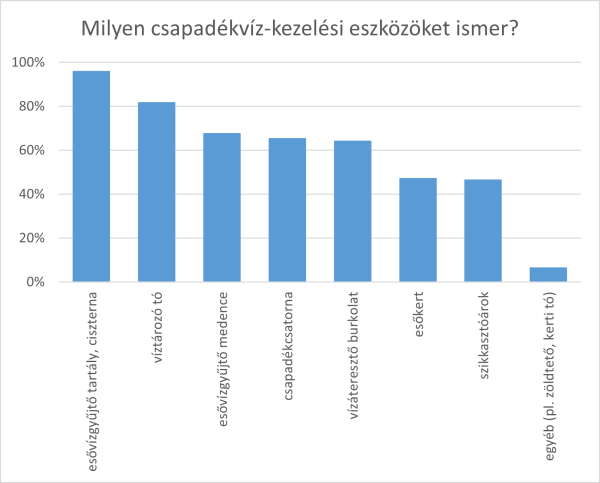
Az első kérdés arra vonatkozott, hogy milyen csapadékvíz-kezelési eszközöket ismer az adott személy. A válaszadók döntő többsége az esővízgyűjtő tartályt, ciszternát ismeri, valamint nagy részük a víztározó tavat is. Az esővízgyűjtő medencét, csapadékcsatornát, illetve vízáteresztő burkolatot, mint csapadékgazdálkodási eszközöket a válaszadók 64-68%-a, az esőkertet és szikkasztóárkot pedig 46-47% ismeri. Kisebb részük egyéb eszközöket is megemlített, mint zöldtető, kerti tó, természetes élőhelyek visszaállítása, többszintes növényzetű kert humuszos talajréteggel, vagy a térkövezés elkerülése. Összességében elmondható, hogy valószínűleg a lakossági esővízgyűjtő-tartály pályázatoknak is köszönhetően ez az eszköz ismert a lakosság körében, de az esőkertek és szikkasztóárkok esetében ismeretterjesztésre van szükség.
A második kérdésnél az derült ki, hogy a válaszadók majdnem fele (48,5%-a) nem tudja mi a különbség az elválasztott és az egyesített csatornarendszerek között. Arra a kérdésre, hogy a felsorolt tényezők mennyiben okozói az egyre többször kialakuló elöntéseknek, olyan válaszok születtek, miszerint leginkább a klímaváltozás miatt hirtelen lezúduló, nagy mennyiségű csapadékok okolhatók, de meghatározó szerepe van a zöldfelületek kis arányának, a vízzáró burkolatok nagy területének is. Ezt követte az okok közül a csapadékvíz elvezetését biztosító csatorna kapacitáshiánya, végül a hálózat tisztán tartásának hiánya.
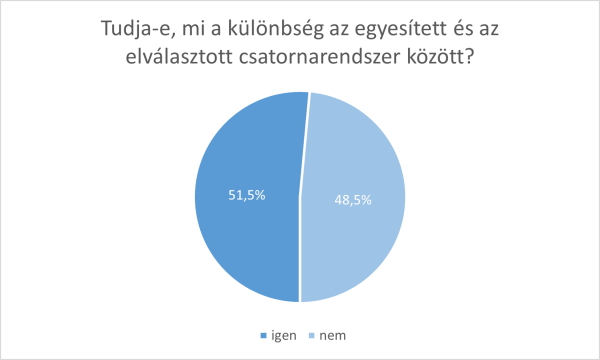
Ezután a saját tapasztalatokra vonatkozó kérdések következtek. A válaszadók 36%-ánál előfordult már elöntés (utcáról érkező, összegyűlt csapadékvíz befolyása pincébe), 13%-uknál egyszer, 16%-uknál 2-5 alkalommal, 7%-uknál pedig több, mint 5 alkalommal. Felülről érkező beázás a válaszadók majdnem felénél (46%) történt már, 18,6%-uknál egyszer, 16,9%-uknál 2-5 alkalommal, 10,5%-uknál pedig több, mint 5-ször.
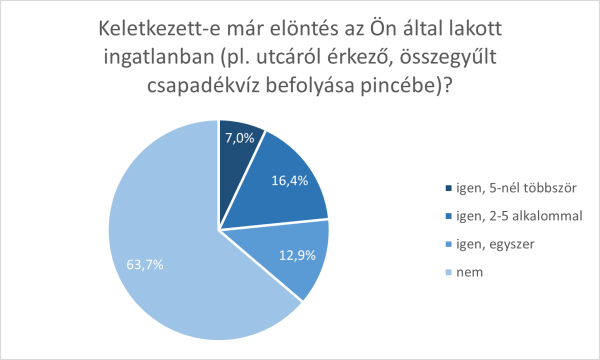
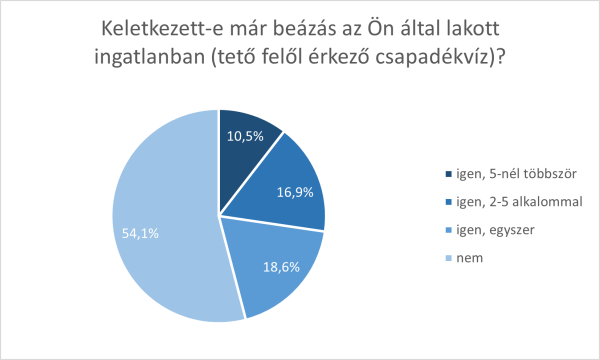
A válaszadók fele (51,7%) szokott ivóvízzel öntözni a kertjében. Ez a csapadékvízgyűjtő rendszerek további támogatásának szükségességére ad okot. A válaszadók túlnyomó többsége (97,7%) szívesen gyűjtené a csapadékvizet. 27,5%-uk jelenleg is gyűjti, 14,6%-uk abban az esetben gyűjtené, ha megkapna hozzá minden támogatást és eszközt, 7,6%-uk akár saját költségből is, viszont a válaszadók 48%-a szerint nincs rá lehetősége, illetve közvetlen befolyása, hiszen albérletben vagy társasházban lakik. Ez alapján a társasházak csapadékvíz-gyűjtésének ösztönzése is indokolt lehet. A társasházban lakó válaszadók nagyrészt egyetértettek azzal az állítással, hogy a társasház alkalmas lenne esővízgyűjtésre, illetve lenne lehetőség az esővíz hasznosítására (pl. öntözés). Azzal azonban már kevésbé értettek egyet, hogy a társasház lakói nyitottak lennének egy ilyen rendszer telepítésére.
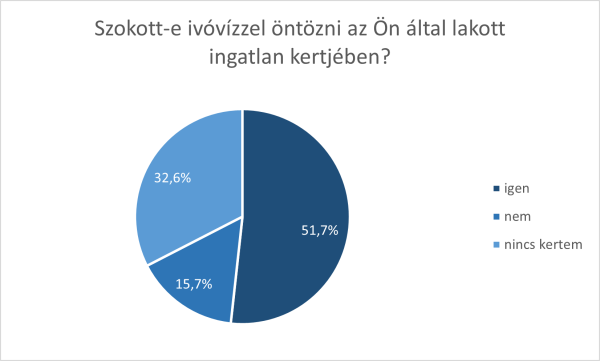
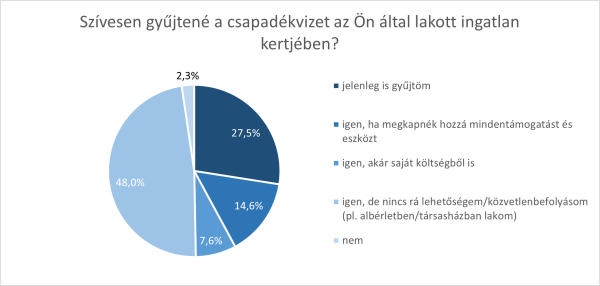
A Budapesten élő válaszadók vegyes választ adtak arra a kérdésre, hogy kihez fordulnának csapadékvízzel kapcsolatos probléma esetén. 37,1%-uk a Fővárosi Csatornázási Műveket, 30,6%-uk a kerületi önkormányzatot, 21,8%-uk pedig a Fővárosi Katasztrófavédelmi Igazgatóságot, kisebb részük (5,9%) pedig a Fővárosi Önkormányzatot keresné fel. Egyéb lehetőségeket is említettek a válaszadók, pl. a tűzoltóságot, a közös képviselőt vagy a jarokelo.hu oldalt.
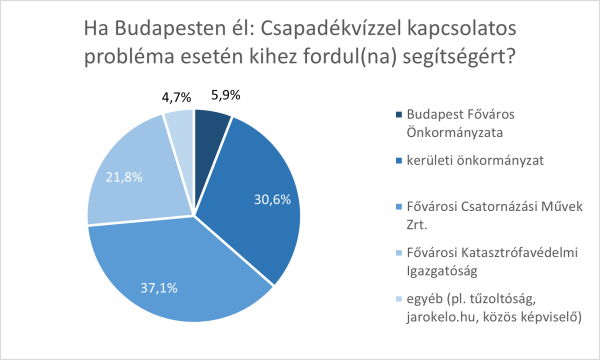



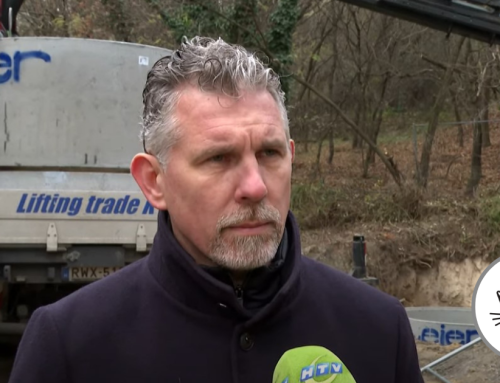
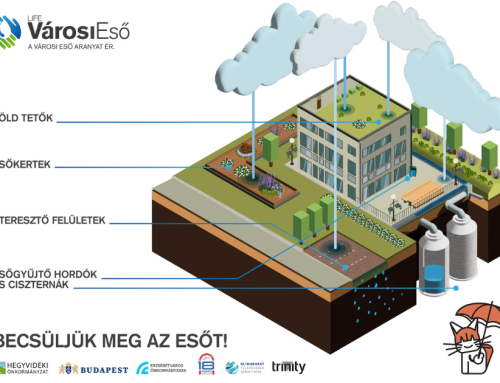
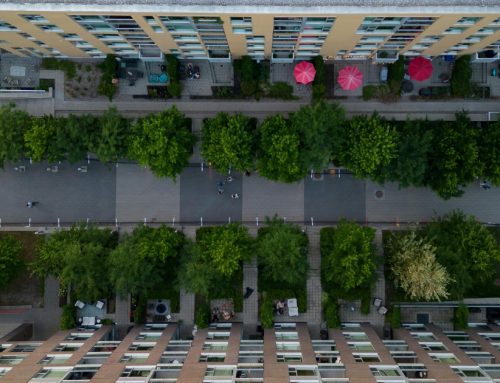

Hagyj üzenetet